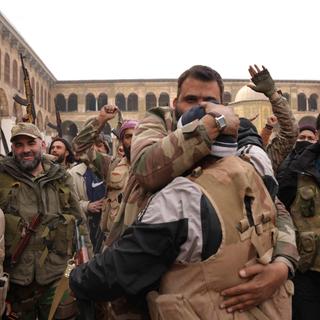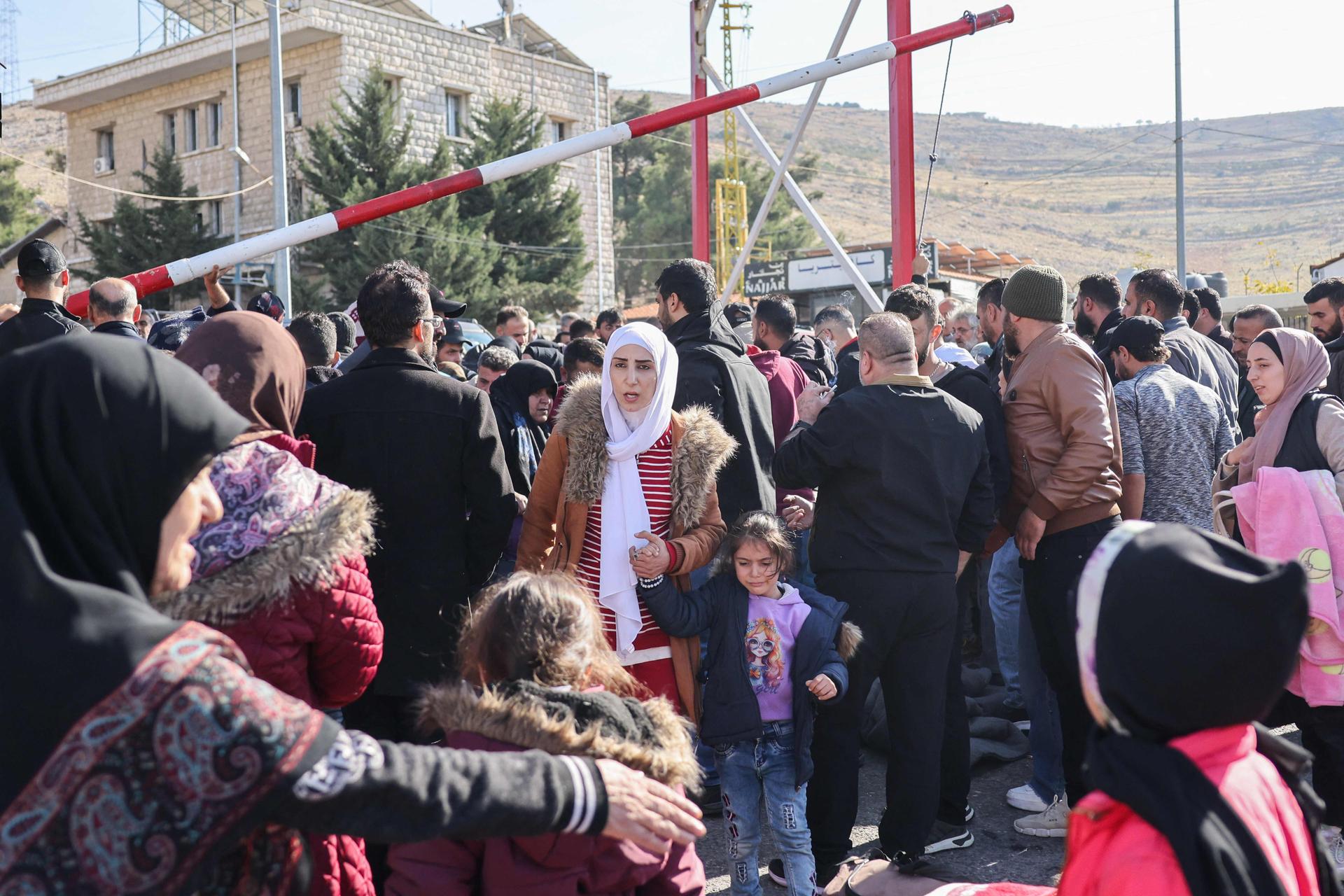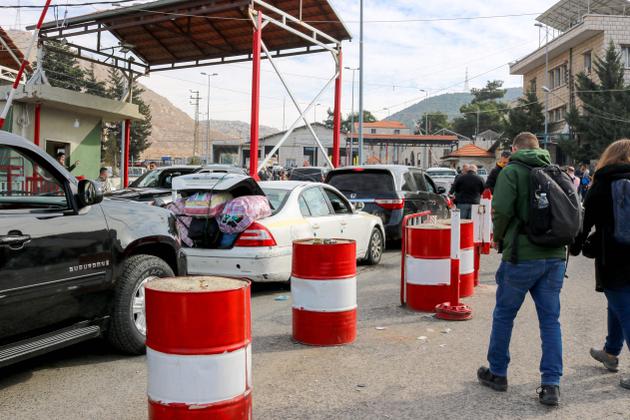


Bashar al-Assad's: The 12 days that toppled the Syrian regime
Long ReadLess than two weeks were enough to put an end to half a century of rule by the Assad dynasty. Although the offensive by the Islamist rebels and their coalition took the regime by surprise, the attack had been prepared for several months and was supported by Turkey.
Stamped papers in hand, Hoda prepared to cross the border between Lebanon and Syria with her mother, daughters, and suitcases. In Zabadani, near Damascus, her husband and son are "happily" waiting for them. Hoda (all those mentioned by first name have requested anonymity), who moved to Lebanon more than a year ago, let her happiness shine through in a burst of laughter as she leaves the border post on the Lebanese side at Masnaa. "The fear, the anxiety of before" have disappeared, with the fall of the al-Assad regime on the night of Saturday, December 7 to Sunday, December 8.
She'd been waiting "for years" for this moment that seemed so unlikely. Hadn't Bashar al-Assad managed to hold on throughout all those years of war, repression and even economic deprivation? Now, Syria is entering a new era, into the unknown, with new leaders: insurgent factions, the most powerful of which is Hayat Tahrir al-Sham (HTS, the Levant Liberation Organization, a former branch of Al-Qaeda in Syria). On Sunday, December 8, Hoda made a vow: "Never to be afraid again."


Syria has just turned a page in its history in the space of 12 days. Abdelkarim was with the anti-Assad rebellion, in Qalamoun, a region near Damascus, until 2013, before taking refuge in Lebanon. He hasn't seen his family in Syria for 11 years. He's not going home yet; he has to take time to organize his departure, but, this Sunday, he's convinced he already knows part of the yet-to-be-written story of the dazzling overthrow of the Baathist regime: "As soon as the Idlib rebel offensive began, I knew that Bashar [al-Assad] was going to fall, because the fighters advanced at the speed of light, without being stopped."
When the attack began on Wednesday, November 27, launched by an insurgent coalition from the Idlib enclave, and including fighters from HTS and pro-Ankara factions, few people were paying attention. All eyes were on the Lebanese-Israeli border: A truce had just come into force between Hezbollah and Israel, after two months of Israeli offensive in Lebanon.
The anti-Assad alliance made headway − and fast. It is taking villages and seizing the highway linking Aleppo and Damascus. The Syrian army's defensive lines are weak around Aleppo, the country's second largest city in north-western Syria. The city was supposed to be defended on the ground by Iranian militias and the Lebanese Hezbollah, and in the air by the Russian air force. However, the Russian air force, which had stepped up its raids on Idlib in recent weeks, seemed to be passive. Pro-Iranian forces withdrew. Hezbollah had already redeployed a majority of its men to the Lebanese front because of the war with Israel.
You have 86.51% of this article left to read. The rest is for subscribers only.
